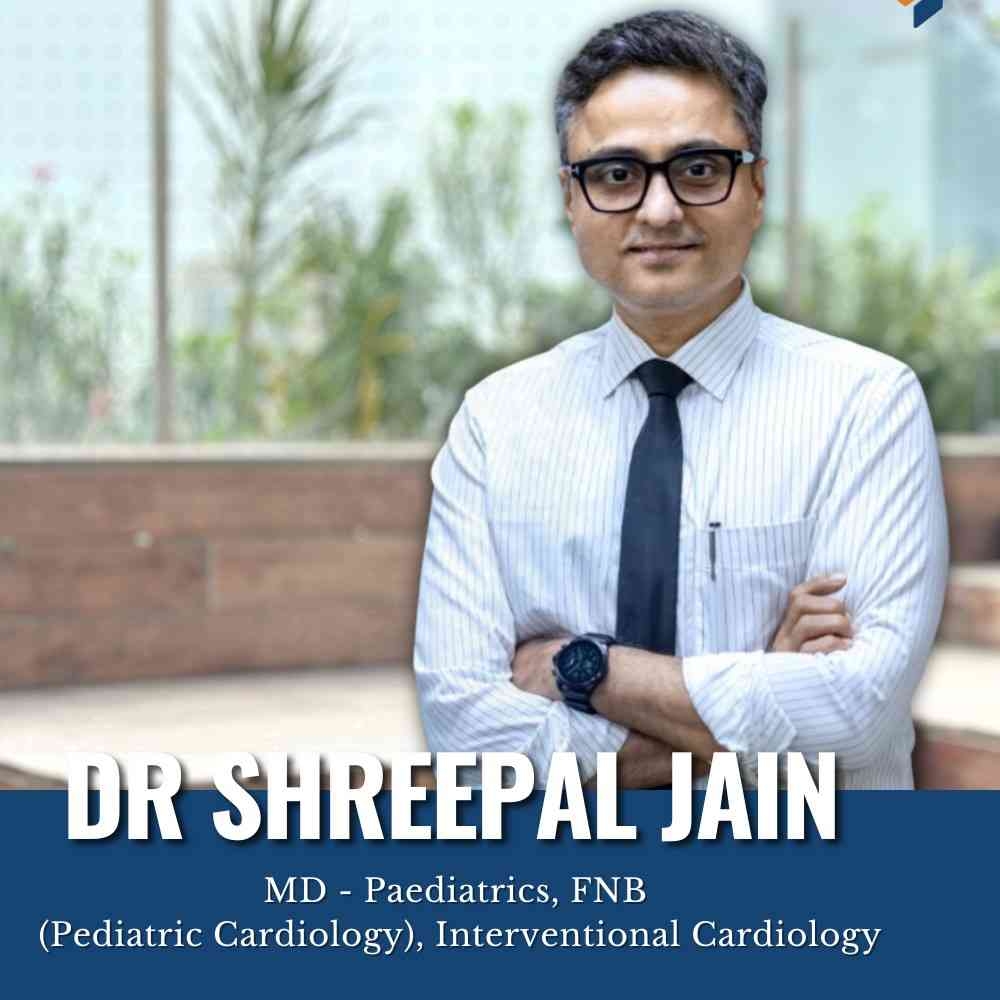+918042781261

This is your website preview.
Currently it only shows your basic business info. Start adding relevant business details such as description, images and products or services to gain your customers attention by using Boost 360 android app / iOS App / web portal.
Description
Heart block in children refers to a condition where the electrical signals that regulate the heart’s rhythm are delayed or blocked as they travel through the heart. The heart has an electrical system that controls the timing of heartbeats, and when there is a blockage in this system, it can lead to abnormal heart rhythms (arrhythmias). Heart block can be categorized into three types depending on the severity of the block: 1. First-Degree Heart Block: This is the mildest form of heart block, where electrical signals are delayed but still make it through to the heart's lower chambers (the ventricles). Symptoms: Often, children with first-degree heart block do not show any symptoms and it may be detected only during a routine ECG (electrocardiogram). Treatment: Usually no treatment is needed. It's generally considered benign, but the child should still be monitored by a healthcare provider. 2. Second-Degree Heart Block: In second-degree heart block, some electrical signals fail to reach the ventricles, which can lead to skipped heartbeats. There are two types of second-degree heart block: Type I (Wenckebach): This type is usually less serious. Electrical signals are progressively delayed until one signal is completely blocked, causing a skipped beat. This may cause dizziness or lightheadedness but is often not life-threatening. Type II: This type is more serious. Some electrical signals fail to reach the ventricles without the gradual delay seen in Type I, which can lead to more significant symptoms like fainting, fatigue, or slow heart rates. Symptoms: Dizziness, fainting, fatigue, or even a feeling of weakness. Type II can lead to more severe issues if not treated. Treatment: If the child has symptoms or is at risk for further complications, a pacemaker may be needed to help regulate the heart's electrical signals. 3. Third-Degree Heart Block (Complete Heart Block): This is the most severe form of heart block, where the electrical signals are completely blocked, and the atria (upper chambers of the heart) and ventricles (lower chambers) beat independently of each other. Symptoms: This can cause a very slow heart rate, fatigue, dizziness, fainting, or even collapse. Without treatment, third-degree heart block can be life-threatening. Treatment: A pacemaker is almost always required to treat third-degree heart block. The pacemaker helps regulate the heart's rhythm by providing electrical impulses to the heart when it isn't receiving the right signals. Causes of Heart Block in Children: Congenital (present at birth): Some children are born with heart block due to problems with the electrical system of the heart. This can occur as a result of genetic factors or autoimmune diseases in the mother, such as lupus (Systemic Lupus Erythematosus). Congenital heart block is often diagnosed during pregnancy (through ultrasound or fetal monitoring) or shortly after birth. Acquired: Infections: Certain viral infections, such as Lyme disease, myocarditis, or even rheumatic fever, can lead to heart block. Medications: Some medications, like those used to treat heart conditions or certain infections, can cause heart block. Heart surgery: In some cases, children who have had surgery for congenital heart defects may develop heart block as a complication. Genetic Factors: Some genetic syndromes may increase the risk of heart block, including certain inherited heart conditions. Symptoms of Heart Block in Children: Fatigue or weakness Dizziness or lightheadedness Fainting or near-fainting Shortness of breath Slow heart rate (bradycardia) Chest pain (less common, but possible) Diagnosis: A healthcare provider will typically diagnose heart block through an ECG (electrocardiogram), which records the heart's electrical activity and can show delays or blocks in the signals. Other tests may include: Echocardiogram: An ultrasound of the heart that can help assess its structure and function. Holter monitor: A portable ECG device worn for 24–48 hours to monitor the heart’s activity over time. Electrophysiology study: In some cases, this may be done to further assess the heart’s electrical system. Treatment: The treatment for heart block depends on the type and severity of the condition: First-degree heart block: No treatment is typically required, but monitoring may be necessary. Second-degree heart block: Type I may not require treatment, but if there are symptoms or progression, a pacemaker might be considered. Type II often requires a pacemaker. Third-degree heart block: A pacemaker is generally needed to regulate the heart’s rhythm. This is usually a permanent solution. Prognosis: First-degree heart block: Generally benign with a good prognosis. Second-degree heart block: Type I may resolve on its own, but Type II typically requires treatment to prevent complications. Third-degree heart block: Without treatment, it can be life-threatening, but with a pacemaker, most children can lead a normal life. Conclusion: Heart block in children is a condition that can range from mild to severe, depending on the degree of blockage. If you notice any signs of heart block—such as dizziness, fainting, or fatigue—it’s important to consult a healthcare provider who can perform the necessary tests and determine the best course of action. If you’d like more specific information on treatment options or symptoms, feel free to ask!

